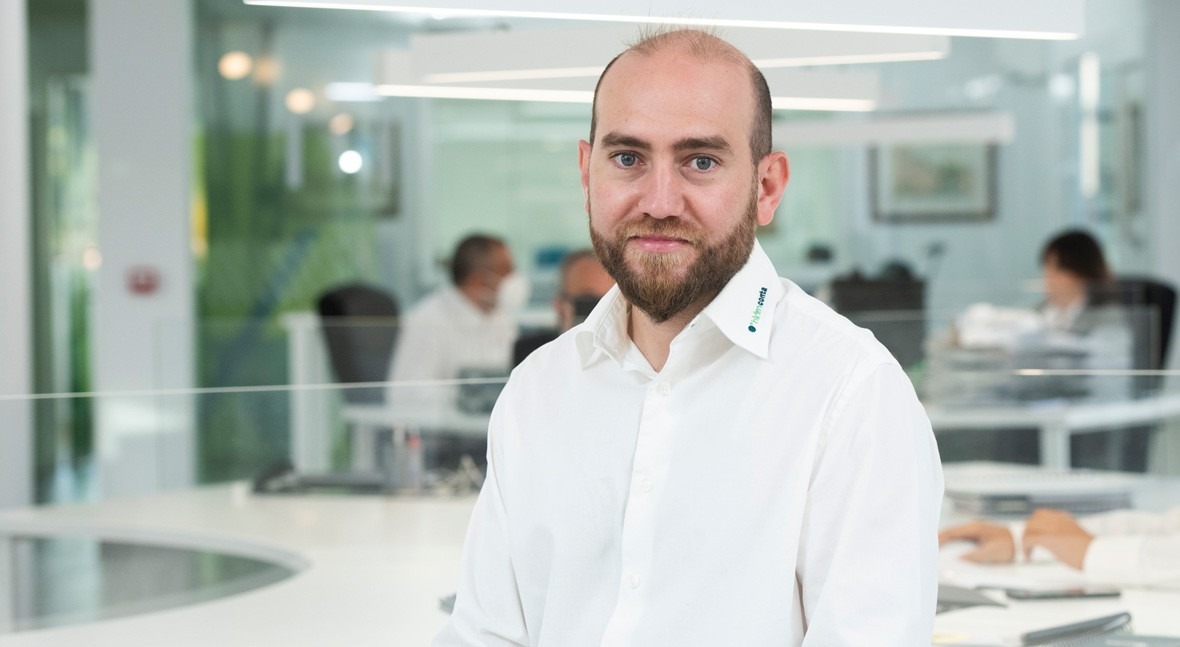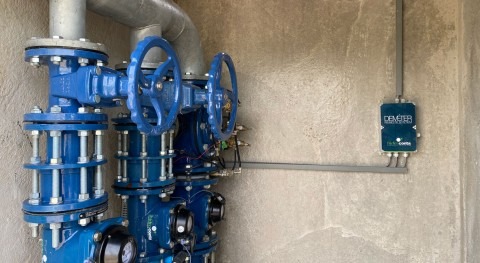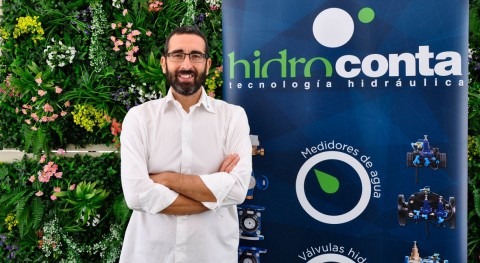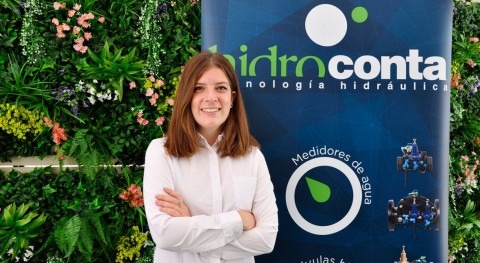Behind a great company there is always a great team, something to feel proud of, no doubt. Hidroconta is a family business founded over thirty years ago that relies on a team of people the company is proud of. They are passionate about their work and that gets transmitted to their clients.
To get to know better the people that are part of the large Hidroconta family we will speak with different professional profiles in the company, to learn how the different departments work and the reasons why talent and enthusiasm are key to the success of Hidroconta. We start with Jesús Caballero Marín, Director of Quality, to know in detail the role of the Quality Department within Hidroconta and the differential value it contributes.
Question: What is your role as Director of Quality in the company?
Answer: When I started working at Hidroconta my tasks included being responsible for quality control; however, a few years ago I became more involved in the quality department, until I became the Director of Quality.
Currently, I am in charge of leading and coordinating quality management and control at all levels. Not only ensuring that the material we receive from our suppliers, or that the orders we send to our clients comply with our quality standards, but also I am responsible for reviewing processes and working procedures (not only concerning manufacture/laboratory), identifying risks and/or improvements, controlling our measuring equipment, etc.
Q: How important is the Department of Quality in Hidroconta?
A: In most companies, the quality department is sometimes seen as just a formality to obtain ISO certification, or even to improve the company's image or credibility. However, I think that way you cannot realise the benefits of the standards.
At Hidroconta, the implementation of the ISO 9001 quality management system in 2000 helped us create a culture of continuous improvement, and has enabled evidence-based decision making. At Hidroconta the quality department is particularly essential because we have a meter lab and we must ensure we are very thorough to comply with the applicable regulations relating to lab and metrological control. Specifically, the standard that sets out the general requirements we must fulfil as a testing laboratory is ISO/IEC 17025.
Q: Hidroconta works on urban water, irrigation, remote control and telemetry, in a diversity of markets in different geographies. How do these factors influence quality policies?
A: Fortunately our reach has increased in the past few years, and we have included new products. Some of them are hydraulic products such as our Taurus valves or our Leopard valves. Other products are electronic devices such as the Deméter devices and their different types. That meant we had to adapt to include the new equipment and register all their features under the standard.
At Hidroconta, the Quality Department has enabled evidence-based decision making
Our quality management system defines all the procedures and processes required for proper operations. As I mentioned earlier, part of it focuses on ISO 9001 and another part is more specific, focusing only on the lab, ISO/IEC 17025. Nevertheless, the manuals in our management system are not static but living documents, subject to constant change.
Our manuals define the codes for all of our articles, and thanks to our ERP system and our tracking system for records and tests, we can streamline response times to solve any issues that may arise. This will become even more important as we expand our presence to a larger number of countries.
Q: What criteria do you use to implement quality policies in the manufacture of your products?
A: The quality policy might be the most important document of a quality system; it is a declaration of intent and must always have the support of management.
The quality policy might be the most important document of a quality system
In terms of our criteria, we think they must encompass mainly three points: reach maximum quality in every respect, accept a commitment to the client, and state our willingness to achieve constant improvement in the system's effectiveness. The quality policy is not useful if it is not related to achieving realistic objectives, which must also be measurable and have resources allocated to them as needed, as well as specific staff responsible for leading them.
Q: What type of approvals and certifications do Hidroconta's products have?
A: Our company is ISO 9001:2015 certified; that is the standard for quality management systems. Moreover, because Hidroconta has a laboratory, it has to comply with the requirements in module D of the ISO/IEC 17025 standard, which are the general requirements for the competence of testing and calibration laboratories.
Specifically, our products subject to metrological control have a series of certifications and depending on the final use of the product (irrigation, industrial use or urban water) they follow different sets of criteria.
Hidroconta has model approvals certified by the Spanish Metrology Centre (CEM) for those meters that are used for billing. For products used with drinking water, we have certification by international laboratories, such as the tests of compliance with public health requirements issued by Groupe Carso and IREN Laboratori. Furthermore, other products follow the Water Regulations Advisory Scheme (WRAS) which certifies they are suitable to be in contact with the public water supply according to UK regulations.
Q: How has test bed automation improved the effectiveness of tests?
A: Hidroconta has one of the largest certified test beds for meters in Europe. In the past few years, we have invested substantial resources in the optimisation and improvement of our test beds, particularly concerning meters. We are aware that they are our best tools, and so any investment in them will quickly pay off.
A few years ago not only did we change from manual test beds to automated test beds, we also changed the way we do our tests, from volumetric to the current gravimetric tests. Because our products undergo metrological control, any amendment in our testing methods has to comply with the current standards applicable to laboratories (ISO/IEC 17025:2017), and always be subject to an audit by the Spanish Metrology Centre, in addition to having to comply with our working procedures under other specifications.
In the past few years, we have invested substantial resources in the optimisation and improvement of our test beds, particularly with regard to meters
Fortunately, at Hidroconta we have the human capital necessary for past and future modifications. We have been able to optimise our test beds and successfully conclude all the work required, from the design and installation of the structure and hydraulic components, to the design and implementation of our own software system tailored to our needs.
For now, this improvement has been completed in the test beds for screwed meters and as well in the beds for flanged meters. Besides having shortened the testing times, we have been able to reduce the uncertainty linked to the process.
Concerning our next challenges, we are already working to update and include new technologies in our test beds for valves, both for small and large gauge ones. In fact, we have already started the manufacturing process of the test bed for small gauges.
Q: Finally, How do you think that the role of the person responsible for quality has evolved in companies over the past few years?
A: First of all, in the past, there was just one person responsible for quality; however, since the standard was adapted in 2015, the director of quality is the top person in charge of quality, but all the departments must be involved to ensure constant improvement. That is, the director is no longer directly carrying out the management tasks; rather, he/she must ensure the involvement of the other departments and integration with the implemented standards.
Nowadays the person in charge of quality must be part of management; that is, this differs from the way it used to be a few years ago, when it could be an external agent. Besides being now a requirement in the 2008 standards, this makes total sense, because it makes it easier to involve the other departments.



















